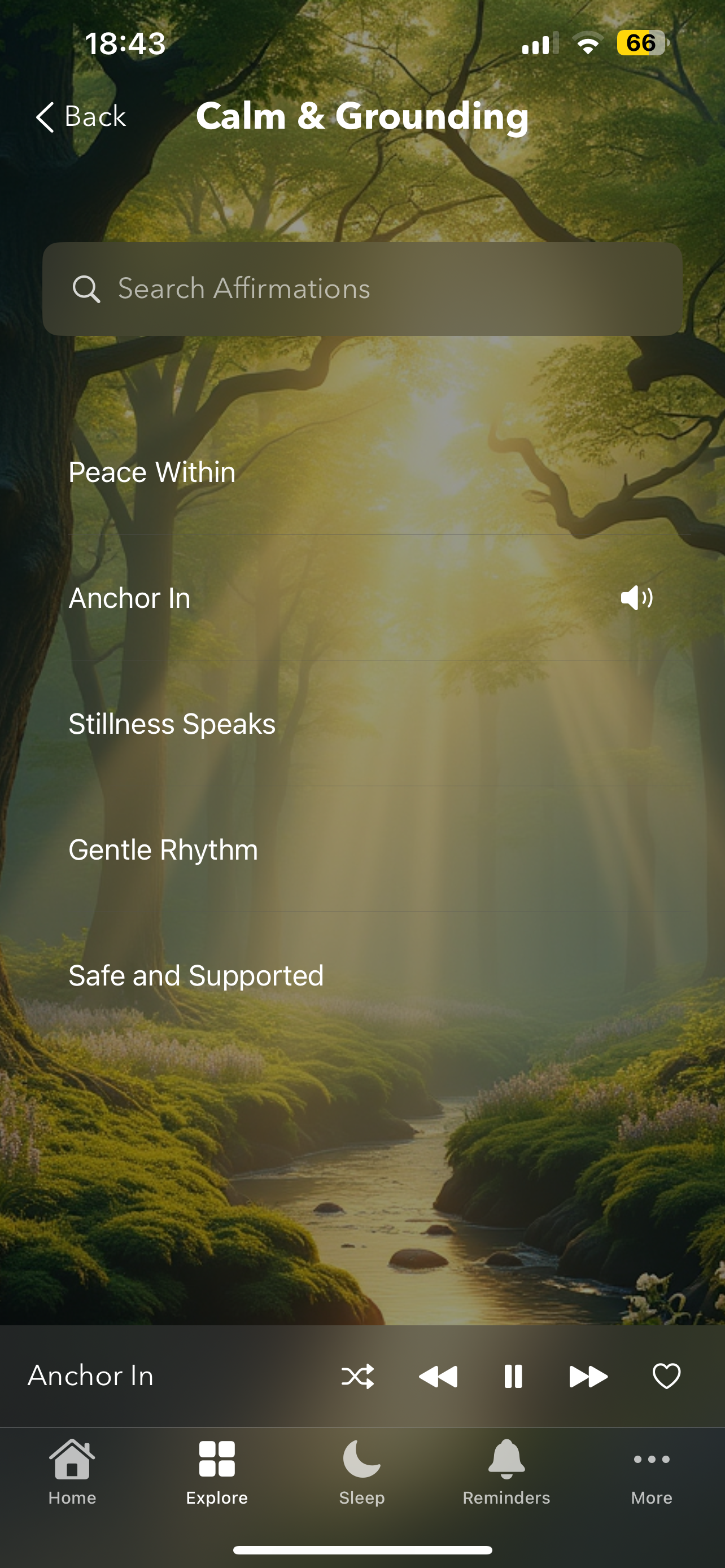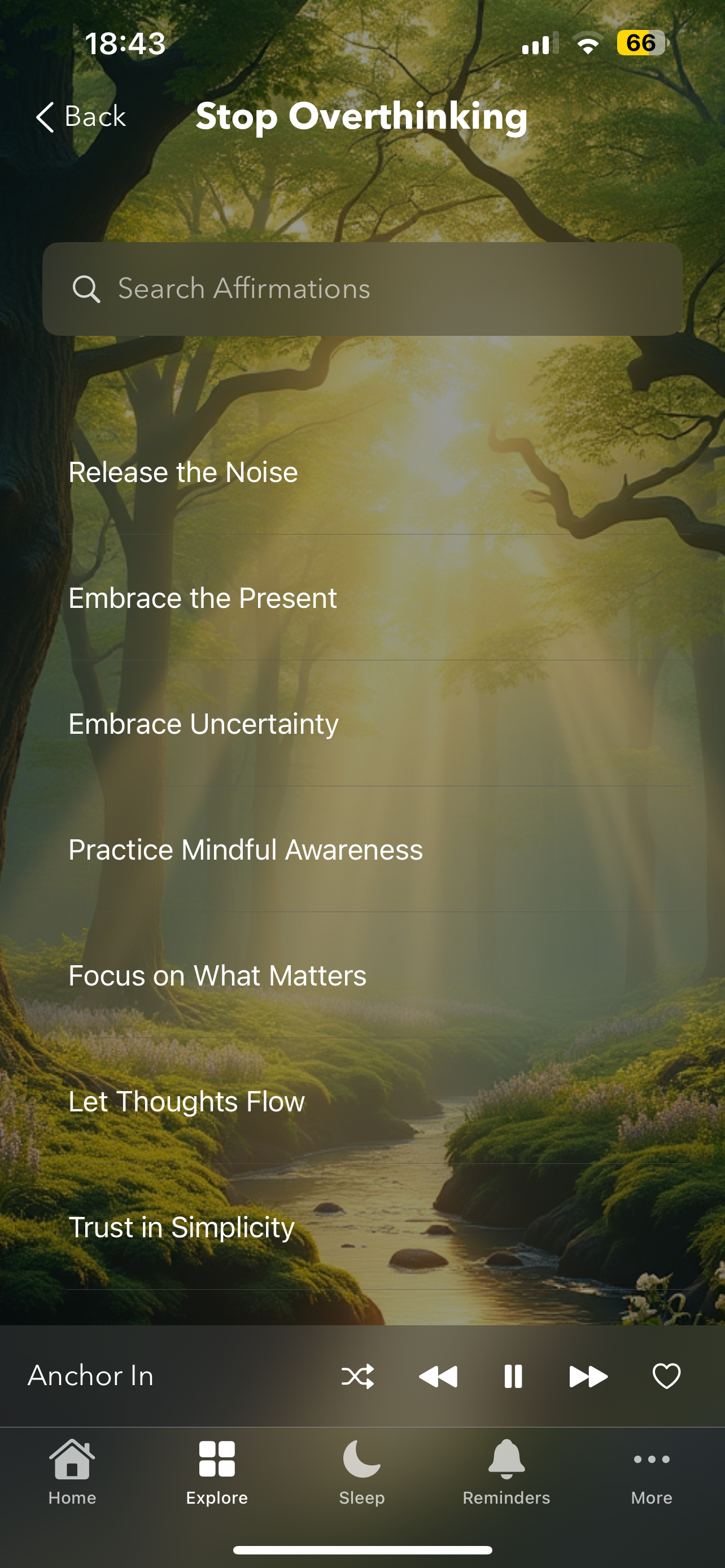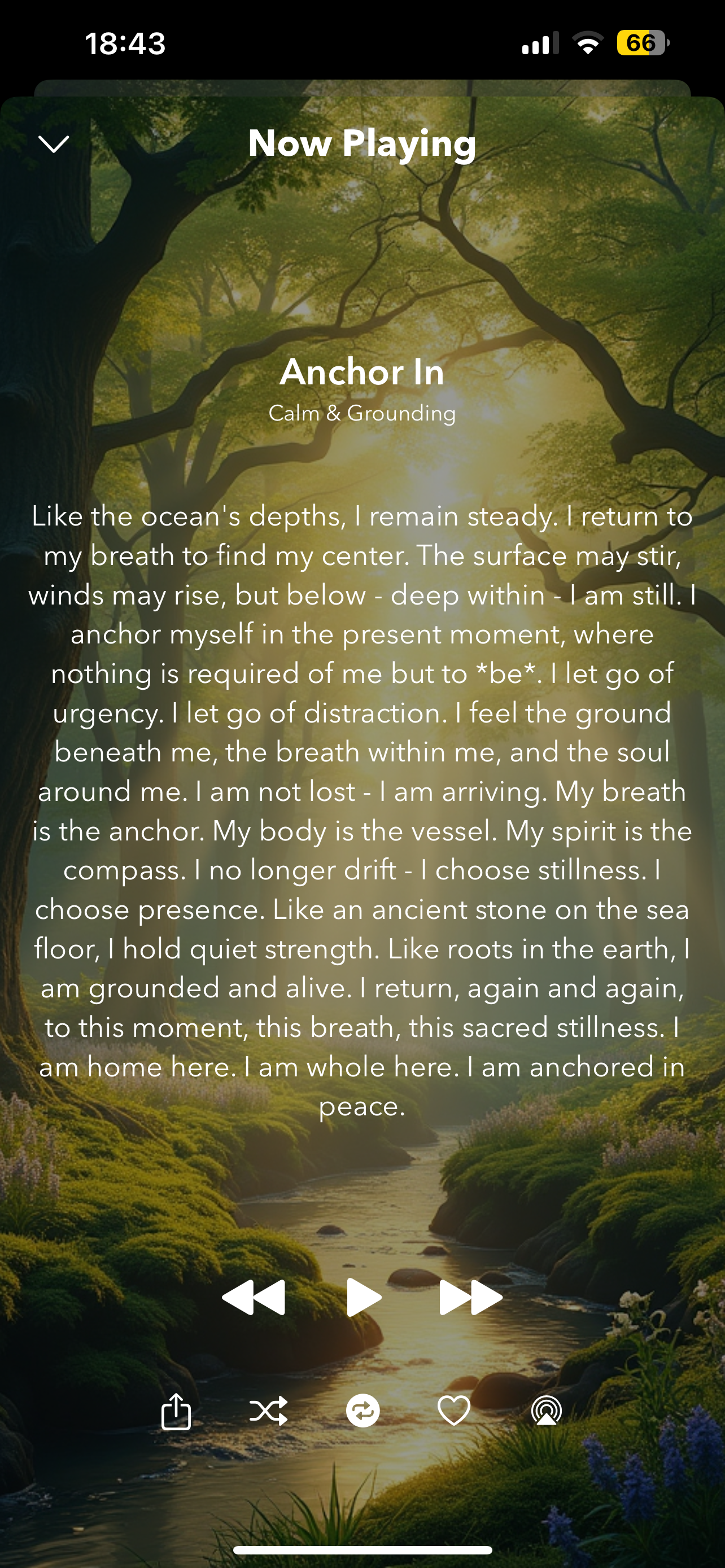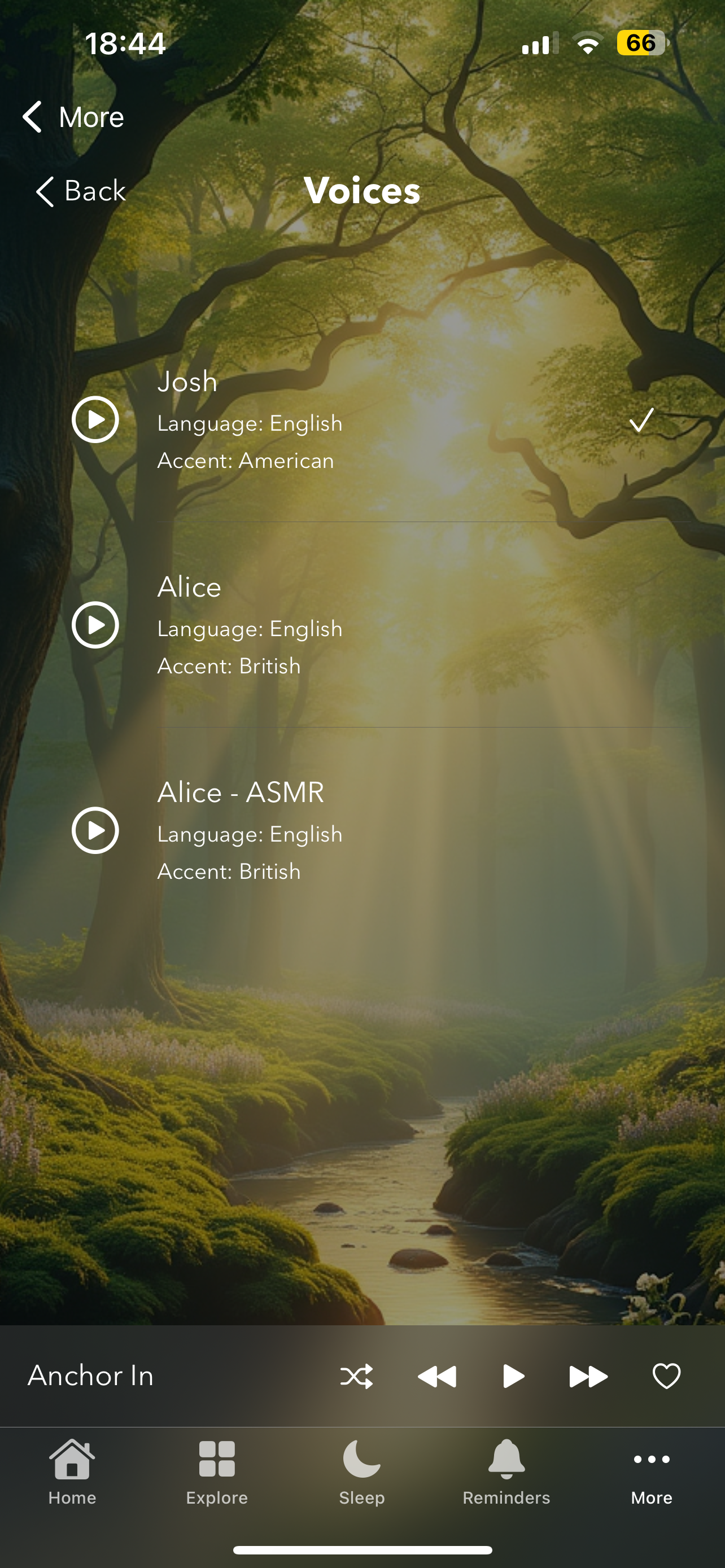Three years ago, I was standing in the grocery store checkout line when it happened again. My heart started racing, my palms became sweaty, and that familiar wave of panic washed over me. The fluorescent lights seemed too bright, the sounds too loud, and I felt like I was drowning in a sea of ordinary Tuesday afternoon shoppers.
If you've ever experienced anxiety or panic attacks, you know exactly what I'm talking about. That moment when your body betrays you, when your mind spirals, and when you feel utterly alone despite being surrounded by people.

The Turning Point
That grocery store moment was my wake-up call. I realized I couldn't continue living at the mercy of my anxiety. I'd tried breathing exercises, meditation apps, and even therapy, but nothing seemed to stick during those crucial moments when panic struck.
Then my therapist introduced me to something that seemed almost too simple: affirmations. Not just any affirmations, but ones specifically designed to interrupt the anxiety cycle and ground me back in reality.
"Sarah," she said, "your mind is like a broken record player during anxiety. We need to give it a new song to play."
Why This Works
Neuroscientists have discovered that anxiety creates specific neural pathways in our brains. Affirmations help create new, calmer pathways that can eventually become our default response to stress.
My First Real Success
The first time I truly experienced the power of affirmations was during a work presentation. I felt that familiar tightness in my chest starting to build. Instead of fighting it or trying to push through, I quietly repeated to myself: "This feeling is temporary. I am safe in this moment."
Something shifted. The anxiety was still there, but it felt... manageable. Like a storm I could weather rather than a tsunami that would sweep me away.
That's when I knew I was onto something.
The Challenge of Self-Doubt
But here's what nobody tells you about affirmations: sometimes your own voice becomes part of the problem. During my worst anxiety episodes, I couldn't trust my own thoughts. My inner critic would whisper, "You don't really believe this," or "This is just wishful thinking."
I struggled with this for months until I discovered something that changed everything: guided affirmations. Hearing these powerful words in someone else's calm, reassuring voice created a psychological distance from my anxious thoughts while still giving me the anchoring I needed.
Real People, Real Stories
I'm not the only one who's found peace through affirmations. Let me share a few stories from people who've experienced similar transformations:
Emma, 28: "I used to have panic attacks every time I drove on the highway. Now I listen to calming affirmations before I get in the car, and I haven't had a single episode in six months. The professional voice recordings make all the difference – they feel like having a therapist in my ear."
Marcus, 35: "As a teacher, I deal with performance anxiety constantly. The 'Stop Overthinking' affirmations have become my secret weapon. I listen to them before every class, and my students have even commented on how much calmer I seem."
Lisa, 42: "I was skeptical about affirmations until I tried them during a particularly difficult period after my divorce. The guided ones helped me rebuild my confidence and self-worth. Now I use them every morning as part of my routine."
The 10 Affirmations That Changed My Life
These are the affirmations that have been my lifeline during the darkest moments. I've arranged them in the order I typically use them, starting with immediate grounding and moving toward longer-term peace:
1. "This feeling is temporary. I am safe in this moment." Listen on AffirmaFlow
I use this first when anxiety hits. It reminds me that feelings pass and grounds me in the present.
2. "My breath is my anchor. Each exhale brings me peace." Listen on AffirmaFlow
This connects the affirmation to a physical action, making it more powerful.
3. "I am not my thoughts. I observe them with kindness." Listen on AffirmaFlow
This creates healthy distance from racing thoughts and self-criticism.
4. "I have survived difficult moments before. I am resilient." Listen on AffirmaFlow
This reminds me of my own strength and past victories over anxiety.
5. "I choose to focus on what I can control right now." Listen on AffirmaFlow
This redirects my energy from worry to actionable present-moment awareness.
6. "I release thoughts that do not serve my peace." Listen on AffirmaFlow
This gives me permission to let go of destructive thought patterns.
7. "I am stronger than my anxiety. I am calm and centered." Listen on AffirmaFlow
This reclaims my personal power and reinforces my desired state.
8. "This moment is enough. I give myself permission to rest." Listen on AffirmaFlow
This counters the anxiety-driven need to always be doing or achieving something.
9. "My mind is clear. My thoughts are peaceful." Listen on AffirmaFlow
This creates a vision of the mental state I want to cultivate.
10. "I am exactly where I need to be. All is well." Listen on AffirmaFlow
This final affirmation brings acceptance and trust in the journey.
Why Guided Affirmations Work Better
After years of working with anxiety clients, I've noticed something consistent: people have faster, more lasting results when they use guided affirmations rather than trying to repeat them alone. Here's why:
- Your anxious brain can't argue with someone else's voice - When you're in panic mode, your own voice becomes unreliable, but an external voice maintains authority
- Professional pacing matters - Trained voice artists know exactly how to time affirmations for maximum calming effect
- Consistency builds trust - The same calm voice becomes a reliable anchor your nervous system learns to recognize
- You can focus on feeling rather than remembering - No need to recall exact words when you're already overwhelmed
Research Insight
Studies show that hearing affirmations in an external voice activates different neural pathways than self-talk, creating what researchers call "psychological distance" that helps reduce emotional reactivity.
How I Discovered AffirmaFlow
For months, I'd been recording my therapist's voice reading affirmations, but the quality was poor and the selection limited. I tried various apps, but most felt generic or used robotic voices that actually increased my anxiety.
Then a fellow anxiety sufferer recommended AffirmaFlow. What immediately struck me was the quality of the voice artists – they weren't just reading words, they were delivering them with the same care and intention as a skilled therapist.
The app has specific categories that spoke directly to my needs: "Calm and Grounding" for those sudden panic moments, and "Stop Overthinking" for when my mind wouldn't quiet down. Having affirmations organized this way meant I could quickly find exactly what I needed without having to think too hard about it.


The Transformation
It's been eighteen months since I started using guided affirmations regularly, and the change has been profound. I still experience anxiety – I probably always will – but now I have tools that actually work when I need them most.
That grocery store checkout line doesn't scare me anymore. In fact, last week when I felt anxiety starting to creep in during a crowded store visit, I simply put in my earbuds and listened to my "Calm and Grounding" affirmations. Within minutes, I felt centered and present again.
The best part? The people in my life have noticed the difference too. My husband commented that I seem "more like myself" again. My colleagues have mentioned that I appear more confident in meetings. Even my mother (who notices everything) said I seem "lighter" somehow.
Practical Tips for Getting Started
If you're ready to try affirmations for your anxiety, here's what I've learned works best:
- Start small - Pick just 2-3 affirmations that resonate with you rather than trying to memorize a dozen
- Use headphones - This creates a more intimate, focused experience
- Practice when you're calm - Don't wait for anxiety to strike; build familiarity with the affirmations first
- Be consistent - Even 5 minutes daily is better than 30 minutes once a week
- Trust the process - It may feel awkward at first, but your nervous system will learn to recognize these new patterns


Your Journey Forward
I want you to know that if you're struggling with anxiety, you're not alone, and you're not broken. Your nervous system is simply trying to protect you in the only way it knows how. With the right tools and consistent practice, you can retrain it to respond with calm instead of chaos.
Affirmations aren't magic – they're medicine. They work by gradually rewiring your brain's default responses, creating new neural pathways that lead to peace instead of panic. But like any medicine, they work best when used consistently and in the right dosage.
The ten affirmations I've shared have been my companions through some of the darkest moments of my anxiety journey. They've helped me reclaim my life, my confidence, and my sense of peace. I hope they can do the same for you.
Remember: healing isn't linear, and there will still be difficult days. But with the right tools and support, those days become fewer and farther between. You deserve to feel calm, grounded, and at peace in your own skin.
Finding Your Voice
If you're ready to begin your own journey with guided affirmations, I encourage you to try AffirmaFlow. The quality and intentionality of the voice artists truly makes a difference, and having affirmations organized by specific needs means you can find exactly what you need when you need it most.
The app has been my reliable companion through everything from minor daily stressors to major life transitions. It's not just an app – it's a toolkit for building the peaceful, centered life you deserve.
